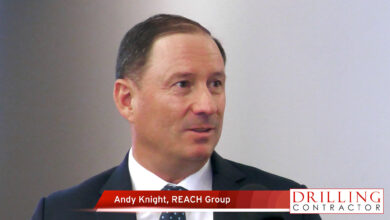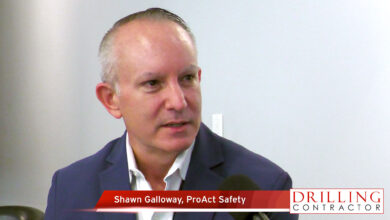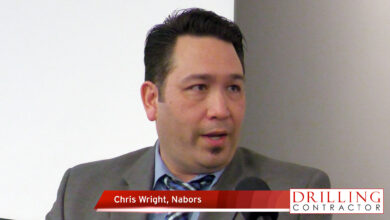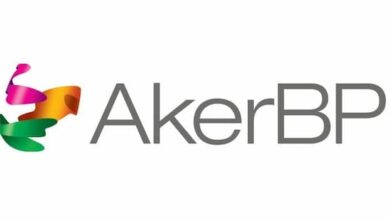Blaine Dow, SLB: Field experience is crucial to developing technologies that can succeed
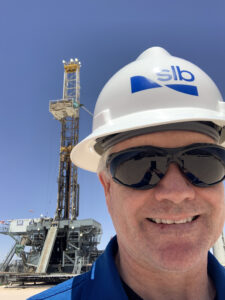
By Stephen Whitfield, Senior Editor
In his 30-plus years in the oil and gas industry, Blaine Dow has steadfastly believed in the power of technology to move the drilling industry into new frontiers. Through various roles in drilling engineering at SLB, he has helped to develop innovative equipment and technologies both for the rig and downhole. As Co-Chair of the IADC Advanced Rig Technology (ART) Committee the past two years, he has also worked with companies from across the industry to enhance understanding and awareness of technologies.
However, despite his belief in technology, Mr Dow knows that, ultimately, it’s the people who make the industry run. He fondly remembers his first job as an MWD engineer for SLB in Western Canada in the early 1990s, driving in every direction from Calgary with whatever equipment was required to perform a certain job on a certain rig.
In particular, he recalls a specific directional drilling job a year into his career, when he was working with an uncooperative formation: “I was trying to steer the well one way, and the formation was taking me another way. And over the course of that job, what was supposed to be a three-day job took about 10 days. I was responsible for steering the well, and it wasn’t going my way.”
It’s moments like that in the field, working directly with rig crews, even making mistakes, that have been critical for him as his career transitioned to the back office, Mr Dow said. He now serves as Domain Head – Drilling Engineering at SLB. While engineers often focus on developing and implementing sophisticated digital and automated systems, such efforts won’t be successful unless they also understand the challenges that drillers and rig crews face on a daily basis out in the field.
“It’s the people at the well site who are going to determine if your technology is successful or not,” he said. “As engineers evolve into different roles where they’re developing technology, if you don’t understand how things actually are being operated at the rig, you’re probably not going to be designing the best solution.”
Another important element to advancing technology, Mr Dow said, is collaborating with people with different fields of expertise, and that is what initially drew him to IADC. He recalls attending his first IADC event – the 2005 SPE/IADC International Drilling Conference in Amsterdam – and being able to have high-level conversations with other technology professionals in the industry on topics that he hadn’t thought much about in his day-to-day work.
“When you talk with other colleagues in the industry, whether they’re from operators or drilling contractors or other service companies, you realize that the challenges we face are all quite similar. Technology takes a lot of investment and a lot of validation in the field. It’s interesting to see the different pathways we use to overcome the constant challenges in bringing in new technologies,” he said.
In 2007, Mr Dow joined the Technical Committee for the International Drilling Conference, helping review abstracts and build technical sessions, a role he still holds today. He also began helping the conference’s Young Professionals Committee organize its Young Professionals session (now the Diversity and Inclusion session).
It was partly through this work with young professionals that he truly realized the critical importance of recruiting new talent and new ideas into the industry. “When the industry is going through hard cycles, attracting new talent can be everybody’s burden. My exposure to IADC has allowed me to bring learnings from other organizations back to SLB, to see what we can do to address these challenges,” he said.
In 2023, Mr Dow stepped into the role of Co-Chair of the IADC ART Committee, recognizing it would be an opportunity to serve the industry he loved. Over the two years of his term, he has prioritized bringing different parts of the industry together to explore topics like energy efficiency and advanced rig automation and digitalization. Interoperability, particularly with regards to drilling control systems, is another key area of focus for the committee.
“I think we’re now moving into a space where, once those systems start to communicate with each other, how do you make them perform most effectively with each other? We need to look at how the use of drilling control systems actually impacts downhole tools.”
Mr Dow said he also plans to stay active with the committee after his Co-Chair term ends, and he wants to continue helping to bring a new generation of industry workers to join the committee and participate in conversations that can help push technology forward.
“For those of us involved in industry committees like ART, I think the number one thing we should look at is bringing in new perspectives and younger talent. Right now there’s not enough of the younger generation coming in and taking these industry collaborations to the next level,” he said. DC

